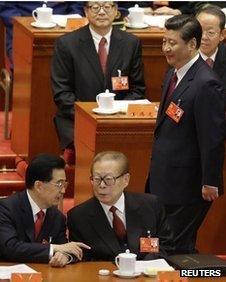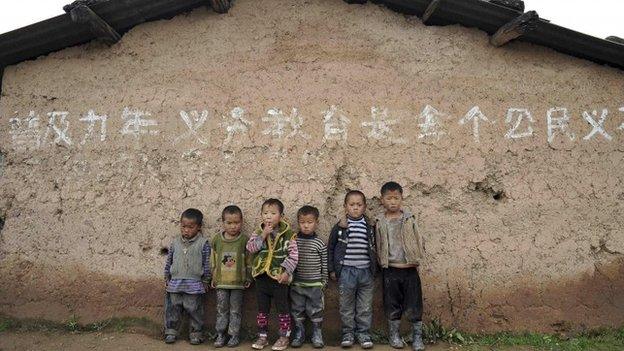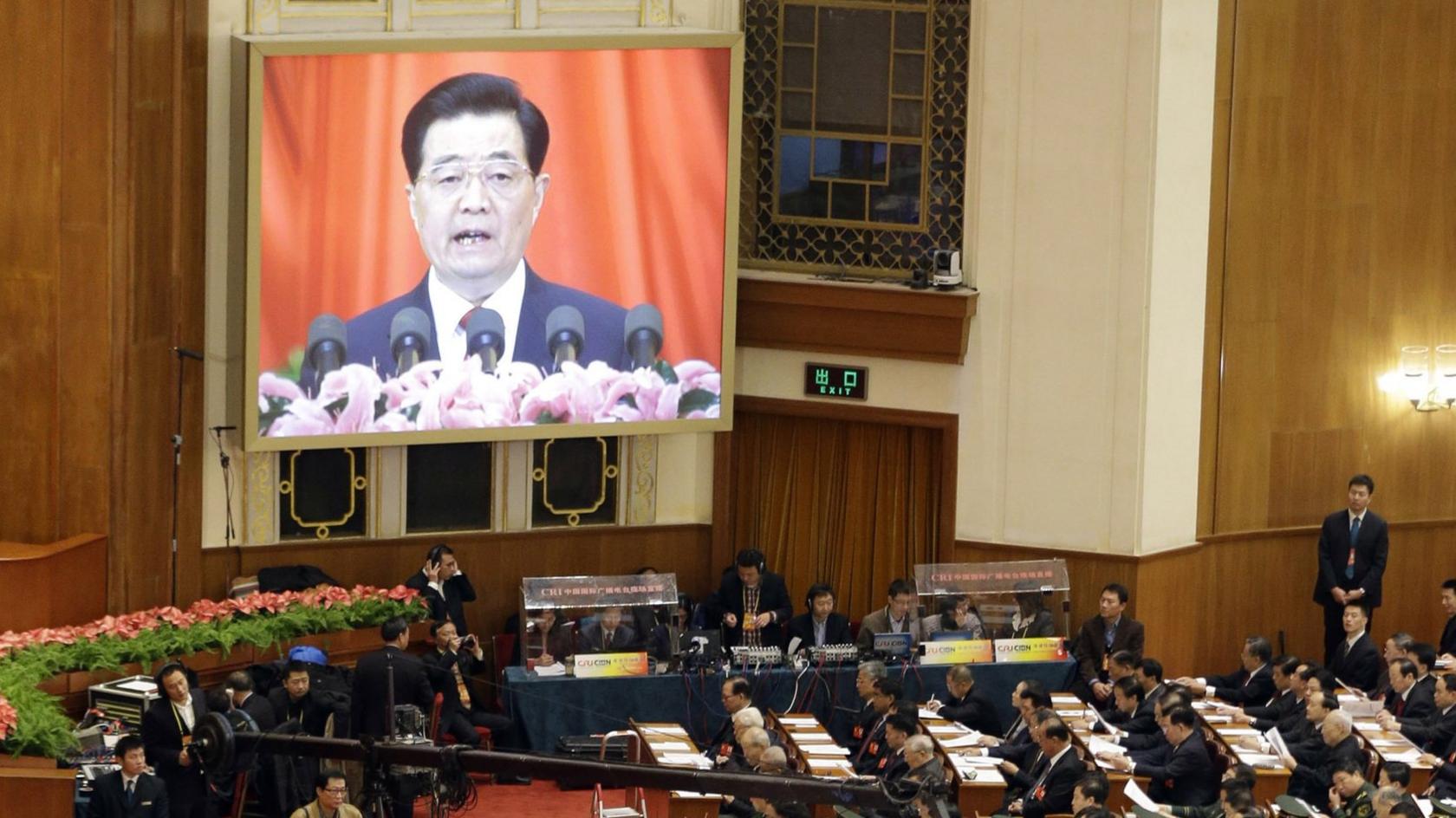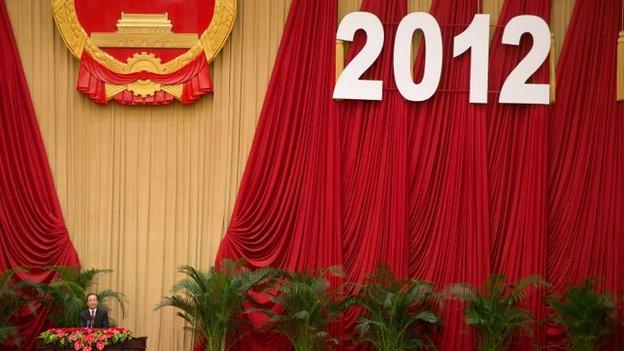China's leaders offer elusive promises of reform
- Published
- comments

As they stepped aside today, Hu Jintao and China's outgoing leaders may have congratulated themselves. China has enjoyed so much economic success in the past decade, it has risen so fast, that it is often said this coming century will be China's century.
China's authoritarian model is praised as more efficient and more nimble than sclerotic Western democracies. China, this view goes, is the future, while the West is in decline.
Many in China, though, are not so confident. There is a widespread sense that political reform has not kept pace with a changing China, and it needs to catch up.
So the question facing the Communist Party is: can it continue to keep China's 1.3 billion people effectively excluded from real power and continue to be successful?
There's no sign the party is willing to engage with those who want far-reaching change, like Liu Xiaobo, China's Nobel Peace Prize winner. He remains in jail, serving 11 years for calling for Western-style separation of powers.
But calls for reform are growing.
"People want rule of law. People want democracy and freedom," says Wu Qing, one of China's most famous civil-rights advocates.
"In the constitution it says people have freedom of speech, freedom of publication, and freedom of lots of things. And yet it is hard. But people are pushing for that."
She served on the local congresses in Beijing for two decades, a rare independent voice, until she was forced out last year. She says in modern China there must be checks and balances on the party: most already exist in its constitution, but they aren't enforced.
"We should have a constitutional court, the judiciary should be independent, and there should be a law to protect the freedom of information. That's what we need. And there should really be free elections at grass roots," she says.
'Credibility crisis'
Calling for more freedom, the people of Wukan expelled corrupt Communist officials from their village last year. Their revolt caught the imagination of many. It ended only when the Communist Party conceded, giving villagers a rare, free vote to choose new officials.
Now, to head off more such crises, the party is considering reform. But it has been talking about reform for a decade.
"In the past 10 years there has been no reform. There has been talk but no substantial reform, so people have a lot of expectations of the new leaders to take up this task," says Bo Zhiyue, of the National University of Singapore.
"The most serious issue the party faces now is a credibility crisis. In the past, people always said local officials are bad and corrupt while the top leaders are clean and liberal-minded. But now I think even top leaders have lost their credibility among people. That's serious."
Chinese artist and dissident Ai Weiwei:"I think China will change. It is inevitable"
Prof Bo says Xi Jinping has commissioned a report into Singapore, to learn how the city-state has become wealthy but kept a system where one party dominates.
"I don't think China will open itself up to a Western-style democracy system. China is opening up to a Singapore-style political-management system."
And he says that reform is urgently needed.
"The danger of not having any political reform in the next five years is that China's Communist Party will lose its credibility as a ruling party, and it will collapse in five to 10 years if they don't do anything," he says.
However, the Communist Party and its leaders are keen students of history, and of the way other Communist regimes have collapsed.
That makes them cautious, says Roderick MacFarquhar of Harvard University.
"They have taken a lesson from what happened under Gorbachev in the Soviet Union. He wanted to reform the party and make Communism stronger. The result was he brought it down," he says.
"In China they don't know which reform might be removing the stone that launches the avalanche. So everyone is reluctant to do anything."
'Unstable condition'
And even if Xi Jinping wants bring about any serious political change, there are now major sectors of the Party opposed to it, says Prof MacFarquhar.
"I think there will be a very great consensus against any such change," he says.
"Because any kind of political reform that meant anything would mean lessening the power, privileges and perks for Communist Party members. And 83 million people did not join the Communist Party only for it to lose its privileges, perks and power."
Outside the party, though, many believe the need for reform is pressing. The artist Ai Weiwei has become one of the party's most vocal critics.
"It's really come to a point when people have completely lost their patience and trust. In this society, this kind of feeling is very deep and very broad," Mr Ai says.
But Mr Ai too has little confidence that the party can bring reform, and fears what that means.
"I really hope they can make the change. But if I tell my true feelings, I think they are incapable to do that," he says.
"I think if they don't make the change, they will bring the nation to a much more unstable condition. If China is not stable, the world will suffer from it."
- Published15 November 2012

- Published8 November 2012

- Published16 October 2012
